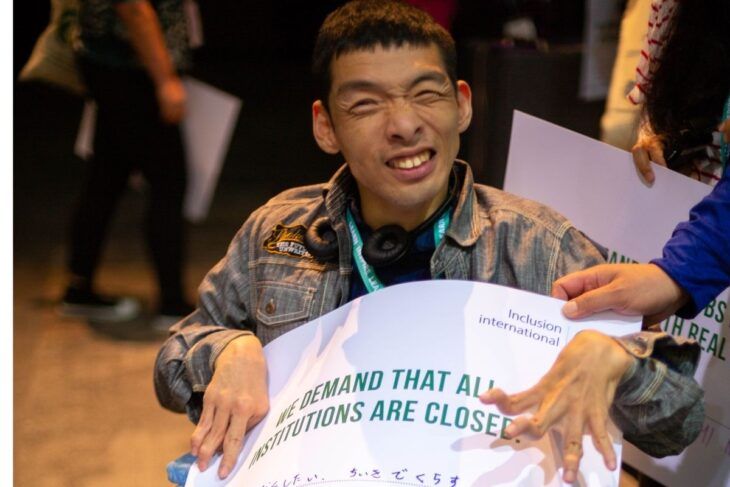Closing institutions

Article 19 of the United Nations Convention on the Rights of Persons with Disabilities (CRPD) says that every person with a disability has the right to live in their community, and to choose where and with whom they live.
What is an institution?
An institution is any place where people with disabilities are isolated or discriminated against. It is any place in which people do not have control over their lives and the day-to-day decisions.
An institution can be:
• large and may be called a hospital or residential care
• small and may be called a group home.
People with intellectual disabilities in group homes do not get to make decisions about what happens inside their home, about moving to another home or living on their own. They do not get their rights.
David Corner, IHC New Zealand
Why is it important to close them?
Institutions deny people basic rights of citizenship, personal control, privacy, decision-making and inclusion in the community.
Millions of people, including children, live in institutions where they are at increased risks of disease, abuse and violence.
People with intellectual disabilities living in institutions tell us they feel very isolated and lonely.
Everyone has the right to choose where they live, and who they live with. People have the right for those choices to be respected.
What do we hope to achieve?
The process of closing institutions requires investments in communities including support to the person and to families as well as accessible housing, transportation, education and workplaces.
Communities and systems must be designed and organised to include everyone.
People with intellectual disabilities have the right to inclusive supports and services which enable to them to be active and equal citizens in their community.
We demand to be included and part of our communities and this will only be possible when all institutions are closed and that no institutional type settings are built again.